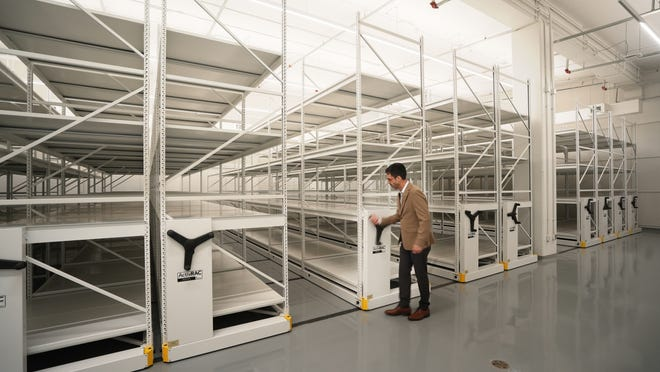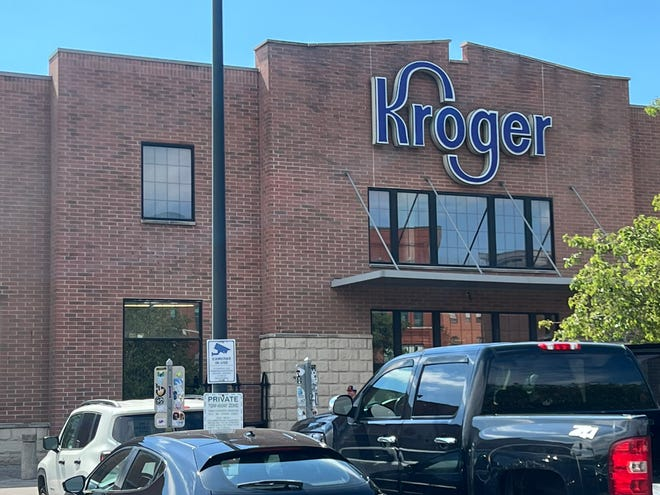
With their businesses hit during the recent unrest, Somalis from Mayfair helped each other evacuate workers and stock from some of the worst-hit areas. Now they have to rebuild.
s the looting following the incarceration of former president Jacob Zuma spread to Gauteng in early July, spaza shop owners and shopkeepers sprang into action to try and save their businesses and their stock.
The first incidents of violence and looting started on Sunday 11 July. While this was happening, Somali spaza shop owners and shopkeepers mobilised dozens of bakkies and trucks and even more helping hands from Mayfair to rescue what stock they could before the looters and food rioters arrived.
It is a response that has been refined through year after year of xenophobic attacks on migrant shopkeepers in the province. A distressed Somali spaza shop worker or shopkeeper alerts others that a mob is on its way, and within minutes men in Mayfair are driving bakkies and trucks to the spaza shop that’s under threat to evacuate those working there and save as much stock as possible.
But this time the riots were too large and too widespread to save all the shops, with many saying the damage they suffered in the 2019 xenophobic violence pales in comparison with the latest unrest. In many instances those coming from Mayfair only just managed to evacuate the workers, leaving behind stock worth hundreds of thousands of rands.
“For 48 hours, I didn’t sleep because we were evacuating people,” said Abdi, who didn’t want to be identified by his full name. “I was driving up and down, up and down. Mayfair to Tembisa, Mayfair to Soweto, Mayfair to Evaton.”
‘Come help me’
Abdi was one of the dozens of Somali men living and working in Mayfair who dropped everything when they were asked to help remove stock and evacuate workers who were under threat.
“We have different WhatsApp groups. Someone will say, ‘Here, they are looting, come help me,’ and then all the Somalis here in Mayfair will go help. We will never say no to go help someone because next it can be me or my shop. Anyone who is ready and has a car will go,” he said.
Abdi, who carried a gun with him as he was evacuating other Somalis from the townships affected by the riots, said they were shot at a number of times. “They were shooting at us and the police were not helping. What must we do?”
After being evacuated from the affected areas, the shopkeepers stored their stock in warehouses and at wholesalers’ premises in the area. The displaced spaza shop workers were housed in and around Mayfair, in lodgings where up to 10 men slept in a room.

Abdurahman Farah, 32, was one of those living in temporary lodgings in Mayfair until it was safe to return to the spaza shop in Thokoza that he manages. Farah said that while they waited, none of the other seven people employed at the spaza shop, including two South Africans, would make any money.
“This is bad. They came on Sunday [11 July] and just took small items. But they came back on the Monday and took everything,” he said.
“The xenophobia in September 2019 was bad. That time they took everything and left. Now they took everything and broke the shop,” Farah added.
Food kitchen
Many of those displaced from Mayfair arrived with little, as there was no time to grab their belongings.
Somali community activist Hassan Abdullahi Aalim, 32, helped evacuate Somalis from a number of townships and later set up a food kitchen in an old restaurant, providing free meals to the more than 200 spaza shop workers and shopkeepers.
“We started the kitchen on 14 July, the Wednesday, when we saw the need for food assistance, especially cooked food. Because a number of the Somalis who were evacuated and came to seek shelter in Mayfair didn’t have anything,” he said.
“I work with Africa Muslim Agency and I approached them, I said there is a need here. Then they reacted and gave us R10 000 to start. I called the community and then we started that way.”

Aalim said things had stabilised enough by the following week for many of the workers and shopkeepers to start returning to the townships and surveying the damage. He closed the food kitchen and focused his attention on ensuring people affected by the violence in KwaZulu-Natal were receiving help.
“Most of the shopkeepers have already started going back and restarting their businesses. There are quite a number of shops that will take some time to restart because they were looted and burned. Our focus now is on how to assist those who cannot open their shop again,” he said.
‘You cannot control a mob’
Abdulahi Abdi Ahmed, 31, and Farah Abdulahi Duali, 32, are two such young entrepreneurs who will need help to restart their business. They are part-owners of Tonko Discount Cash and Carry in Tembisa, where their business and the neighbouring businesses on the premises were completely looted.
Ahmed, a South African citizen who is studying pharmacology at the University of the Witwatersrand, has co-owned the business for more than four years. He and Duali estimate that they lost about R6 million in stock, with the damage to their equipment on top of that.
He said it was one of the most difficult things he’s had to experience, standing 100m from his business and watching helplessly as it was overrun and looted in the presence of police officers.
“We were right there with the SAPS, like 10 vehicles were there, but these people just came and started throwing stones and burning tyres, so you cannot control a mob. The police were there, but it still happened … The shop was gone, they were looting the whole night,” he said.

Ahmed said some of the looters arrived in bakkies, trucks and Quantum mini buses. “Emotionally, that night we were not very happy because you are just stunned. As an adult, you invest in a business for the last five years. We took loans from companies, banks. We took loans from our families … And we were just there watching as things go up in flames with the police watching.
“We were looted by the people we were serving. During this time last year, when Covid [hit and] we were in hard lockdown, we were giving the community free hampers of food. We gave away like R500 000 in stock to the community. Not all the community are looters, but when the looting is in full gear, everyone is going to join. That’s bad,” Ahmed said.
Ward councillor Nomthandazo Sibulawa said her heart broke for them. “This doesn’t just cost them,” she said, pointing at their damaged building behind her. “It will cost even us as the community. Everybody has been affected by this.
“If they are in pain, we are in pain as the community, because we get everything from them. They help us when we’re short with money. They are like children for me, this really hurts,” she said.


































